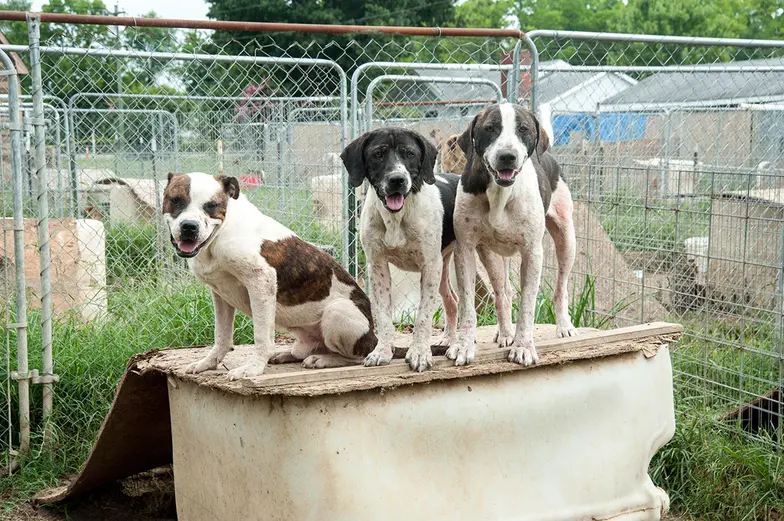

Your community views your shelter or rescue as an authority on animal welfare issues and looks to you for advice on reporting animal cruelty. Familiarizing yourself with your local laws will help you to support concerned citizens and protect animals from harm.
Police, whether state or local, are generally the principal law enforcement agency charged with investigating complaints of animal cruelty, animal fighting or any other crime relating to animals.
Some states also grant authority to animal control officers, peace officers or agents of humane societies to investigate cruelty complaints, execute search warrants, and arrest the suspects. Here’s a general overview of what people should keep in mind when reporting animal cruelty suspicions.
If possible, citizens wishing to make a cruelty complaint should be prepared to provide law enforcement with the following:
You can instruct citizens that if they are suspicious of animal cruelty, they should be sure to keep a careful record of exactly whom they contact, the date of the contacts and the content and outcome of any discussions.
Never give away a document without making a copy for your own records.
Make it clear to the officer that you are very interested in pursuing the case, and that you are willing to lend whatever assistance you can.
Although law enforcement agencies must pay attention to anonymous reports of serious crimes, including animal cruelty, they are more likely to follow up on cases where there are credible witnesses willing to stand behind the report and, if necessary, testify in court about what they may have witnessed.
If community members do not receive a response from the officer assigned to their case within a reasonable length of time, suggest they make a polite follow up call to inquire about the progress of the investigation. As a last resort, and only if they are reasonably certain that no action has been taken on their complaint, they may wish to contact a supervisory officer or a local or state government official to request action.
Community members should keep in mind that most law enforcement agencies operate with limited personnel and resources and most of these agencies are doing their best to conduct timely and efficient investigations. Being respectful of the challenges they face and giving them the benefit of the doubt when appropriate will likely get concerned citizens much further than premature complaints to the law enforcement agent’s superiors.
This area of the law is complicated. Actual instances of cruelty for entertainment purposes may well constitute crimes. However, fictionalized depictions, even of despicable acts against animals, may be constitutionally protected as free speech.
Concerned viewers can do the following:
Some of what is being sold and shown online crosses into the realm of criminal activity. And in some cases, there are laws against showing and selling these images.
To report online materials or websites that may display acts of actual cruelty to animals, concerned citizens should fo the following:
Citizens can report cruelty using one of the contacts listed here.